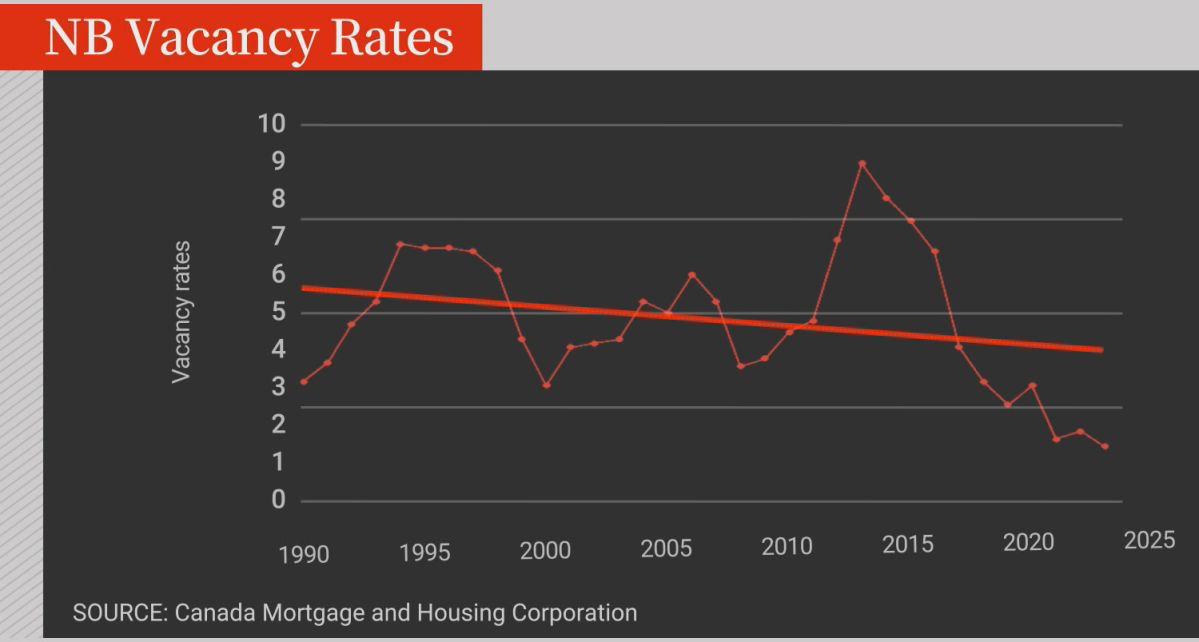A yearly rental market survey shows New Brunswick’s 2023 vacancy rate was the lowest it’s been in over 30 years.

The Canada Mortgage and Housing Corporation (CMHC) has released vacancy rates since 1990. In 2023, the primary rental market’s vacancy rate was 1.5 per cent. That’s 53 per cent lower than the 1990 rate and 83 per cent lower than its highest rate in 2013.
Julia Woodhall-Melnick runs a social sciences lab through the University of New Brunswick, called Housing, Mobilization, Engagement and Resiliency Lab. She researches housing and advocates for social equity. She says a healthy vacancy rate is 4.0 per cent. New Brunswick’s vacancy rate hasn’t been at 4.0 per cent since 2017.
“It was definitely not healthy to begin with,” she said.

Get breaking National news
And nationally Canada also recorded its lowest vacancy rate in 2023 at 1.5 per cent, according to CMHC.
Teri-Lynn Gopie found housing immediately when she moved to Fredericton a year-and-a-half ago — that’s why she moved. But now, she can’t afford her rising rent, and she’s struggling to find a new place to live.
“I’m on a restricted income due to disability, so I don’t get a pay raise,” she said. Housing’s become a big concern for her, and she’s not alone.
Nichola Taylor, the chair of advocacy group New Brunswick ACORN, said the current rental market is pushing people with lower incomes to the edge.
“Many people are just one rent increase away from being made homeless,” she said.
CMHC’s Rental Market Survey also shows New Brunswick’s rent grew more than 10 per cent between 2022 and 2023. Taylor said the rising rent and lowering vacancy rate are impacting the more vulnerable people in New Brunswick.
“We’ve seen the amount of affordable apartments dwindle very fast in the last five years, especially since COVID,” she said.
She wants the provincial government to reinstate rent caps.
Woodhall-Melnick predicts the market will likely remain similar in 2024.
“It will continue to be hard to find an apartment that suits your needs,” she said.









Comments